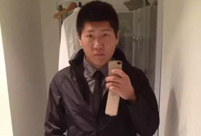

The U.S. Department of Defense recently issued a report on China-related military and security developments for 2016. The report once again fans the theory of the "China Threat," complete with accusations of insufficient transparency in military power. It also twists China's defense policies in the South China Sea.
China has voiced strong opposition to such a prejudiced report. Regardless of the report’s content, China's national defense will not be affected by any of the accusations.
“In reading history, it is those countries with militaries who are prepared and ready that fare much better than countries that have no militaries and aren't,” said a U.S. senior military official in a recent interview with the New York Times, claiming that his forces must be ready “to fight tonight.”
As the strongest military power in the world, the U.S. has always been extremely cautious. For the same reason, China's national defense, the purpose of which is to safeguard China’s independence, sovereignty and territories, is totally reasonable. The so-called China Threat is a lie.
Contributing to peace and stability in the Asia-Pacific and beyond, China has always followed the path of peaceful development and pragmatic national defense. The report issued by the Pentagon does nothing more than reflect the U.S. government’s two-facedness when dealing with China.
In recent years, the U.S. has made solemn commitments to manage differences and sensitive issues in a constructive manner. U.S. President Barack Obama once said that the U.S. welcomes China's peaceful rise, and a strong and prosperous China can help bring stability and prosperity to the region and the world.
However, Washington has since then done a great deal of interfering with China's internal affairs under the banner of "human rights," provoking conflicts in the South China Sea and defaming China's national defense. What the U.S. has done, no matter if it was out of anxiety or due to a miscalculation in its domestic politics, has damaged the mutual trust between China and the U.S.
“China and the U.S. need to expand cooperation and healthy competition…[avoiding] high risk and cost,” said a senior official in Washington early this year. This statement represents the overall belief of most U.S. politicians, but such a vision requires strong willpower. It seems that the conceit of the U.S. comes from its confidence in its own power, but behind that veneer is obvious insecurity.
This article was edited and translated from “兩面性”有損中美戰(zhàn)略互信(鐘聲)Source: People's Daily
 French girl ties the knot with Chinese boy
French girl ties the knot with Chinese boy Beijing Style: ready for bare legs
Beijing Style: ready for bare legs Century-old station sees railyway evolution
Century-old station sees railyway evolution Enthusiasts perform Kung Fu at Wudang Mountain
Enthusiasts perform Kung Fu at Wudang Mountain Stunning photos of China's fighter jets in drill
Stunning photos of China's fighter jets in drill Monk's mummified body to be made into a gold Buddha statue
Monk's mummified body to be made into a gold Buddha statue Former Chinese solider of the French Foreign Legion seeks wife online
Former Chinese solider of the French Foreign Legion seeks wife online Asia's longest and highest suspension bridge to open to traffic
Asia's longest and highest suspension bridge to open to traffic China's first interactive robot looks like a beauty
China's first interactive robot looks like a beauty Top 20 hottest women in the world in 2014
Top 20 hottest women in the world in 2014 Top 10 hardest languages to learn
Top 10 hardest languages to learn 10 Chinese female stars with most beautiful faces
10 Chinese female stars with most beautiful faces China’s Top 10 Unique Bridges, Highways and Roads
China’s Top 10 Unique Bridges, Highways and Roads Chongqing blazes trail with PPP
Chongqing blazes trail with PPP Only 5% of LGBTI Chinese are ‘out’
Only 5% of LGBTI Chinese are ‘out’ Six Assurances to Taiwan only empty promises
Six Assurances to Taiwan only empty promises Chinese-Filipino community tries to heal rift as South China Sea spat worsens ties
Chinese-Filipino community tries to heal rift as South China Sea spat worsens tiesDay|Week